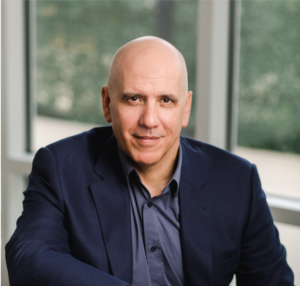I was asked an interesting question last week at the IREM Asset & Property Management Symposium in New York.
“Why would groups of people, many of whom directly compete with each other, get together to share ideas, best practices, and concepts that might erode some competitive advantage?”
The individual behind this query was a new vendor salesperson in the space. It’s an understandable question for the uninitiated.
From the vendor/provider’s perspective, there’s obvious value in attending these events because they represent an opportunity to gain access to the right people and prospects who make the decisions to potentially buy their stuff. But, the success of that effort at this type of event is fully dependent upon that prospect, in this case, commercial real estate leaders, to show up, participate in panels, and share their knowledge, opinions, and insights.
I regularly see many of these CRE leaders actively participating, as they recognize the intrinsic value in sharing certain types of information with their peers and the market. This concept of “giving” is universal in its application and is a cornerstone attribute of many successful people.
Organizational psychologist and University of Pennsylvania professor Adam Grant breaks down the success of “Givers” in both his book, Give and Take: Why Helping Others Drives our Success, as well as his TED Talk viewed 2.5 million times.
This was well exemplified at the IREM conference in Boston Properties CIO, Jim Whelan’s presentation on cyber security. Jim stated clearly at the beginning of his slot that he “didn’t care about press mentions, being tweeted, retweeted, or shared in any way” There didn’t appear to be obvious business value to Jim or Boston Properties in having him share his thoughts on this important topic. But nonetheless, he took his time to travel to, attend and passionately speak at this event, in which he delivered an overview of cybersecurity risks and best-practices.
Why? I didn’t get to ask Jim directly, but I have seen him speak enough to know that he is authentically passionate about the real estate industry and recognizes that he is a steward of the reputation of the industry and that this subject represents real risk. By sharing his knowledge, he is helping to protect that reputation and in turn, helps his organization maintain theirs.
Jim wasn’t alone in sharing his time, insights and expertise at the conference. There was terrific conversation on panels and keynotes from many. Some takeaways include:
1. It’s all about creating value for property owners
Senior Managing Director for Cushman & Wakefield, NY’s Joseph Manasseri was interviewed by Michael Mandel of CompStak. In discussing management trends and growing Cushman and Wakefield’s NY management business, he emphasized that regardless of the trend, technology, person or program, it has to equate to creating value for their customer (property owners.)
2. Millennials might start moving out of cities
Richard Recny, Director Asset Management from Time Equities sat on the Asset & Property Management Challenges in 2017 panel I participated in. He shared that the organization is beginning to look back to investing in the suburbs as they see an eventual millennial move out of cities as they start families and need more space.
3. Payback periods on capital, energy and software expenses
This panel also shared that the average payback period on capital or energy-related expenses was five years, max. For software investments, this period should be two years.
Related resource: Read how to avoid costly mistakes when deploying property operations software.
4. The economy is generally perceived positively by CRE.
As evident in the results of audience polls, the state of the economy was assessed to be generally positive in terms of the impact on rents and occupancy.
5. Technology Companies Need to Play Nice With Each Other
David Gubbay, Vice President, Business Credentialing Services discussed legislative issues related to leasing and hiring as well as insurance requirements. He also provided guidance on how CRE technology users and providers should leverage API’s (Application Program Interface) to include or share data sources that help improve operations by reducing data replication and enhancing data.
My thanks to all the participants for sharing their time, insights and knowledge. We couldn’t do what we do with their involvement and we all benefit from the experience and their help. As Adam Grant has said, “…helping is not the enemy of productivity, a time-sapping diversion from the actual work at hand; it is the mother lode, the motivator that spurs increased productivity and creativity.”






